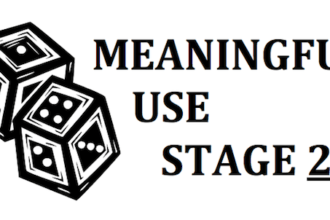If you’ve ever been treated in a medical setting, you may have left feeling like you received the same care as everyone else. Unfortunately this is an all-too-common problem in today’s healthcare system. Because of the medical world’s approach to treatment (called “standard of care”) most patients do receive the same tests, assessments and medications despite the individual differences that could arise from patient to patient. This one-size-fits-all approach may be okay for some cases but often patients could benefit from care that is tailored to them. Personalized medicine is forging ahead with new approaches for disease management and prevention by looking at a patient’s unique vulnerabilities and tendencies for disease on a genetic level. Also called genomic or “precision medicine”, this approach was only possible after mapping of the human genome, completed in 2003, but very few people are really familiar with it even today. According to researchers, a 2013 survey found that only 27% of people were familiar with the term “personalized medicine” and a meager 4% knew that the term related to medical care based on a person’s genetic makeup. How can personalized medicine help you? People are using personalized medicine in two ways—for disease prevention, and to gain insight about current disease to guide treatment. For example, Pathway Genomics offers a test that, with a saliva sample, can be sent in to a laboratory and tested for a spectrum of tendencies based on your personal history. This is beneficial to learn because if, for example, your close family members have suffered from heart attacks or cancer. Your genetic information can help you know your likelihood of contracting similar ailments. A genetic test may be able to identify markers in your body that raise your risk and can inform your healthcare provider what medications or treatments your body will respond to best. This information can guide both you and your doctor to the right preventative strategies to help you live a healthier life. In the case of treatment, let’s look at cancer. Certain tumors may be made of specific genetic material that can be identified through testing and provide doctors with valuable insight into the right medications to shrink them more efficiently. This is a much more targeted approach than the trial-and-error method of testing different treatments. An expanding world of medical care Imagine the day you can see your doctor and ask “Is this treatment right for me?” and your doctor can actually respond with accuracy. Personalized medicine holds great benefit for the future of health, and many tests are available today to get you started including ones that identify: · Heart disease risk factors · Risk for hereditary cancers · The best medications for mental health conditions and pain control · Weight control, metabolism and nutritional needs · Cancer tumor identification · Genetic disease preconception and prenatal carrier information Many tests can be ordered by you to provide your healthcare team the information needed to make the lifestyle changes and decisions that could save your life.
The Next Thing in Healthcare: Personalized Medicine
Ryan Kh is an experienced blogger, digital content & social marketer. Founder of Catalyst For Business and contributor to search giants like Yahoo Finance, MSN. He is passionate about covering topics like big data, business intelligence, startups & entrepreneurship. Email: ryankh14@icloud.com





